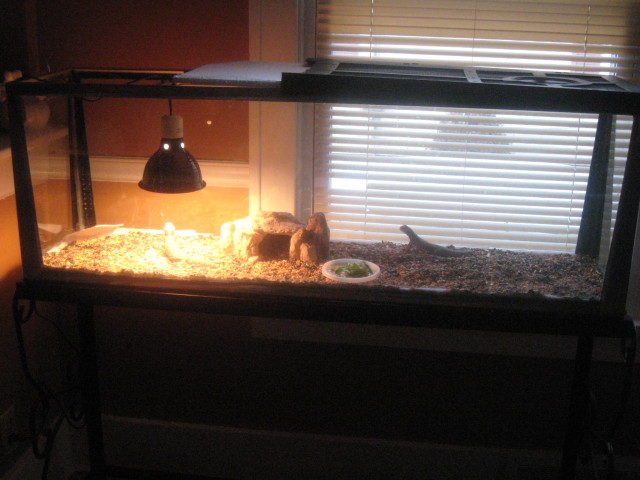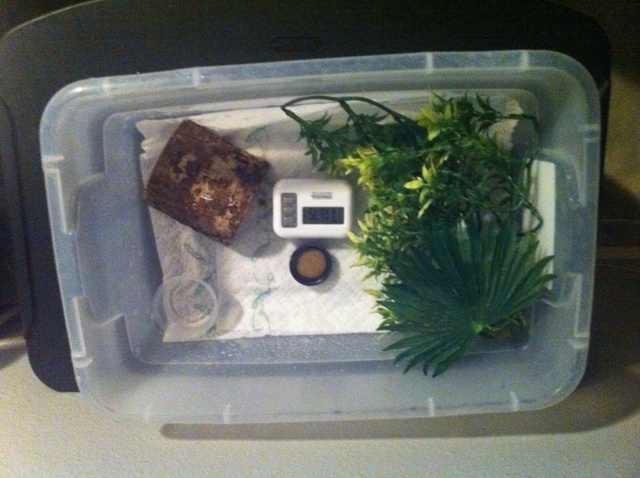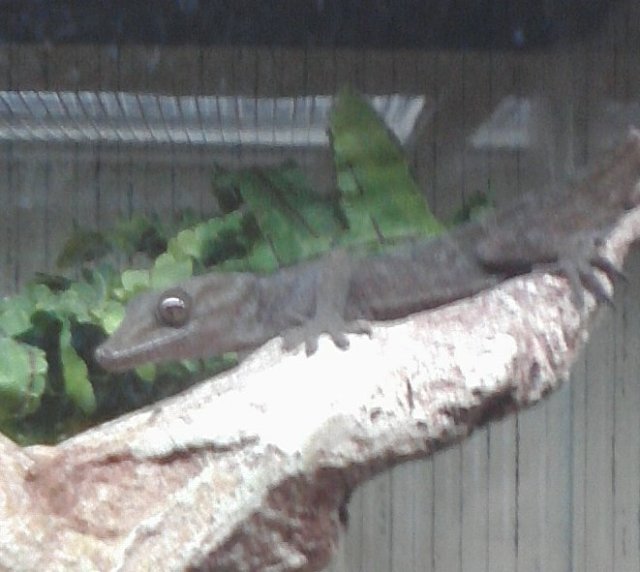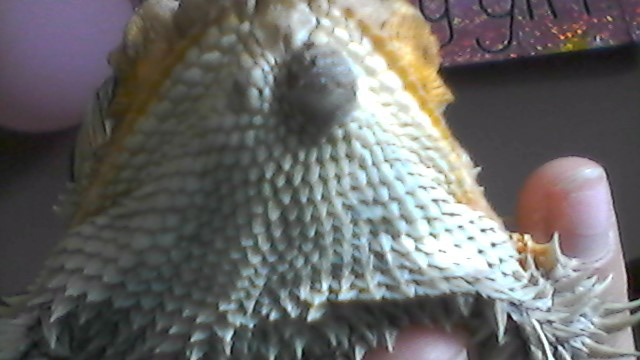Question-------------------------
Followup To
Question -
Hi Dave,
Some days ago I was near a pond and caught 3 grass snakes. Having understood they are harmless, I was fascinated of the idea of breeding a snake at home. I got them with me in my house and now I have some questions about it.
1. I am curious to know how old are they if one is long about 45 cm and the other 2 are about 25 cm.
2. Am I right thinking that they let out that smell and hiss ONLY to defence when they are afraid of some factors? Although they are harmless, can they bite me or sorta? Or they can just hiss at me? :-D
3. How long they can stay out of water without any bad consequences for them?
4. How to make for them the best home and help them feeling comfortable in it? What they like and what not? Average temperature of the water? Accessories? (I know only about the big stone ;)
5. I have a problem... yesterday one of them managed to run away and it's SOMEWHERE in the house or out of it now. I do not know where is it. I am worried for it not to die... is there any way I can draw it to me?
6. How to differ which one's male and which is female? And when they are full grown, ready for reproduction?
Lot's of thanks in advance! ;)
Answer -
I'm sorry, but before I can answer your question I must clarify. The only Grass Snake I am familiar with lives in Europe. If you are from Europe, and this is indeed a Grass Snake, then I have no personal experience with this snake at all, and can only tell you general information.
Please verify that this is a Grass snake and I will try to answer your question as best I can.
yes, it is European grass snake! I saw it on some pics. I will be very grateful if you at least try to answer my questions.
Thanks,
Vlado
AnswerFirst, I must suggest that you release those snakes back in the pond, and go buy a good captive bred corn snake. Water snakes do NOT make good pets, due to their generally aggressive personality, difficulty to find food, and extensive maintenance. Also, according to this site, http://www.homestead.com/brambleandazlan/grass.html
it is illegal to even keep the grass snake in captivity.
However, if you still choose to keep them, then here is as much as I know:
Since these are wild snakes, I should say that it is very likely that they have salmonella virus, and you should therefore wash your hands after handling them. Also, because they have been in the wild their whole lives, they may never be fully tame, and therefore might bite you occasionally. It helps not to make any sudden movements, and never let them feel cornered. It also helps to use something( like a pencil) to touch the snake before picking it up from its cage. Many snakes will bite and incoming object (usually because they think it is food,) but will generally not bite the hand that is holding it, as it feels just like its natural environment.
The hiss is a warning, and it depends on the individual snake's personality whether or not it will stop at the warning, or will try to bite. (You might want to wear gloves until you are sure they will/will not bite.)
Since they are reptiles, it is not critical to their survival to have water...they will not "dry out,"
but they should always have at least a water dish available for drinking. However, since they are used to an aquatic environment, they will feel much more comfortable if given water deep enough to completely submerge itself.
As for temperature, room temperature should be sufficient, though a low heat light bulb on the top of the cage would be a good idea. Also, if you decide to fill the aquarium with a few inches of water, it will need to be changed almost daily, to avoid bacteria and algae buildup. (It is for this reason that water snakes are not commonly kept as pets.)
Sorry, but there's really no way to draw out a missing snake to you. Look in dark places, such as under the bed, in closets, etc.
I hope I could help you, and I hope you consider releasing the snakes back into the wild.
Also, here is another site I found with some useful information:
http://www.bbc.co.uk/nature/wildfacts/factfiles/278.shtml
If you have any further questions, please do not hesitate to ask.

 uromastx lighting
QuestionMy Uros
QUESTION: I have 2 uromastx, the
uromastx lighting
QuestionMy Uros
QUESTION: I have 2 uromastx, the
 Leopard Gecko abcess
QuestionQUESTION: Ive had my female leopard gecko for 2
Leopard Gecko abcess
QuestionQUESTION: Ive had my female leopard gecko for 2
 babe crested gecko
Question
crested gecko tub
i just got my crested gecko
babe crested gecko
Question
crested gecko tub
i just got my crested gecko
 frank
Questiongidget
QUESTION: Well, Ive been research
frank
Questiongidget
QUESTION: Well, Ive been research
 Bearded Dragon Wart/Mole/Skin Tag
Question
Wart Wart2
Hi Mick. Thank you for
Bearded Dragon Wart/Mole/Skin Tag
Question
Wart Wart2
Hi Mick. Thank you for